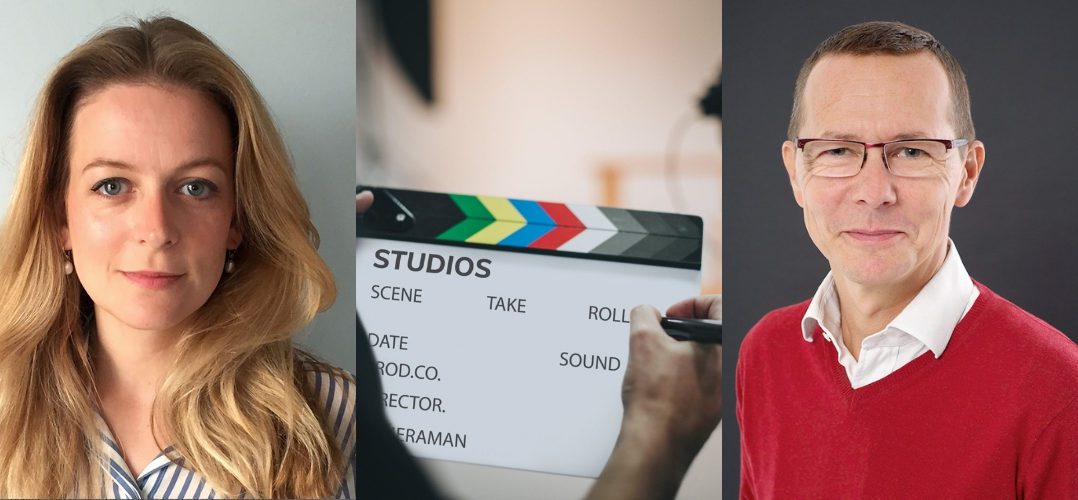In a recent interview with the MIP Daily News (to be published during MIPTV), Laurent Boissel, joint-CEO and co-founder of France-based About Premium Content (APC, above right) said the biggest challenge facing distributors right now is “for them to remain solely as a distributor and keep growing their business. That’s why truly successful distributors are not only distributors anymore, they are mini-studios.”
Boissel’s fundamental point is that distributors can no longer simply be sales agents, coming to markets like MIPTV with completed product. In the case of APC, which he characterises as a mini-studio, great emphasis is placed on getting involved in shows as early as possible. In fact, more than a third of APC’s development slate originates in-house.
The main rationale for adopting this mini-studio approach is that distributors need to move quickly in order to secure access to great content – particularly if they are not part of a vertically-integrated outfit like the Hollywood majors or All3Media, for example. Leave it too late and they will be excluded from the game or finding themselves paying over the odds for whatever territorial or platform rights happen to be left over.
Intervention at the development stage is only one dynamic changing what it means to be a distributor in the 21st century. Just as significant is the growing gulf between what content costs and what channels are willing to pay. It’s no exaggeration to suggest that, for many scripted and non-scripted productions, the budget deficit covered by distributors is significantly bigger than the contribution of individual broadcasters or platforms. Distributors stumping up 50% of the budget is not uncommon – and in the case of factual TV there are a growing number of shows for which they have put up the whole amount.
This increased risk investment explains why some distributors have started referring themselves to mini-commissioners – despite the fact that they are not aligned with any channels. Kew Media subsidiary TCB Media has even gone as far as to appoint a commissioning editor, Hannah Demidowicz (above left), formerly of BBC Studios.
Referring to distributors as “mini-studios” or “mini-commissioners” is, in effect, another way of saying that they have moved up the creative and commercial food chain. And this fact manifests itself in various other ways. For a start, many of the leading distributors are now as adept at acquiring content as they are at selling it. So, for example, whenever anyone talks about the growing international appeal of non-English-language drama, keep in mind that distributors have been as much a driving force in sourcing such content as delivering it to end users.
It’s also noteworthy that leading players like the BBC, Red Arrow and Fremantle no longer place distribution in a divisional silo – an example being the disappearance of the BBC Worldwide brand. The functions performed by distributors are now so integrated with production that putting a barrier between them seems regressive and inflexible. That’s why you’ll often see distributors in the role of executive producers.
The fact that distributors are no longer simply sales operations also explains why we are seeing the emergence of new business models like Atrium, the scripted content buyer’s club devised by DRG and former Sony boss Howard Stringer. By acting as a broker between producers on the one hand and telcos/regional OTT platforms on the other, Atrium has opened up a new way to get premium drama to the market.
As a by-product of having so much skin in the game, distributors have developed a marketing sophistication that goes way beyond trade press ads and a few posters on the Croisette in Cannes. Many of them talk the language of brands and are sure-footed when it comes to areas like social, influencer and content marketing – not to mention all the intricacies that go into licensing and merchandising. As trade paper TBI noted in a recent analysis of this point, “It is no longer enough to buy, make and place content – distributors must also ensure that a programme cuts through the clutter and is found, both by buyers in the B2B space as well as consumers via effective B2C strategies”.
So if distributors are buyers, sellers, studios, co-producers, commissioners and marketers all rolled into one, what don’t they do? Well one thing that most of them agree on is that they need to leave the creative process to showrunners, writers and directors. Indeed, many distributors take pride in being guardians of the creative vision against the push and pull of competing broadcaster notes. It’s also intriguing to note that distributors don’t really go in for talent representation, although with the likes of Endeavor moving in the reverse direction, this classic industry distinction might also soon blur.




